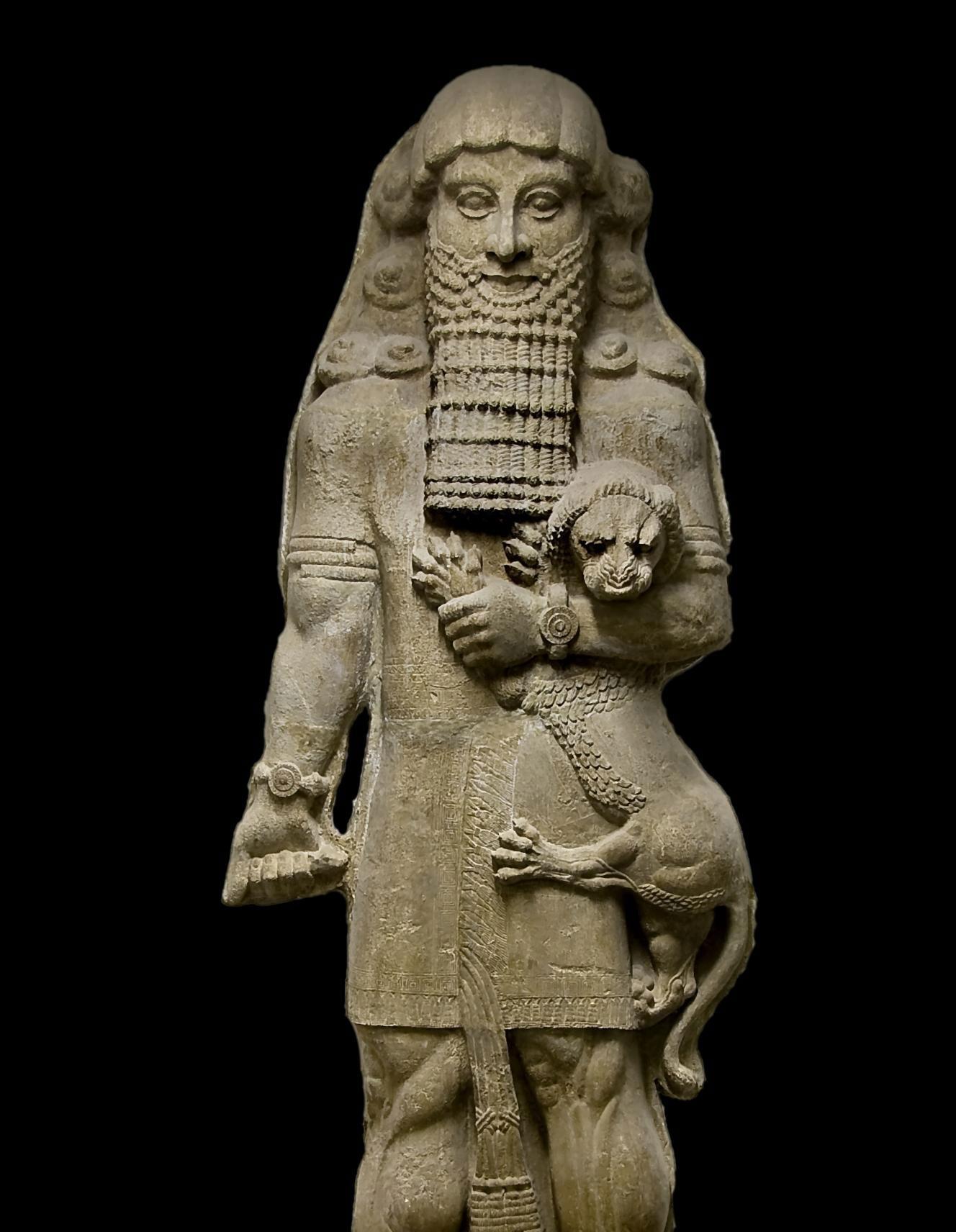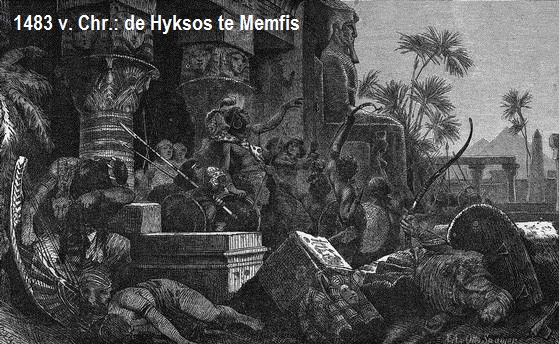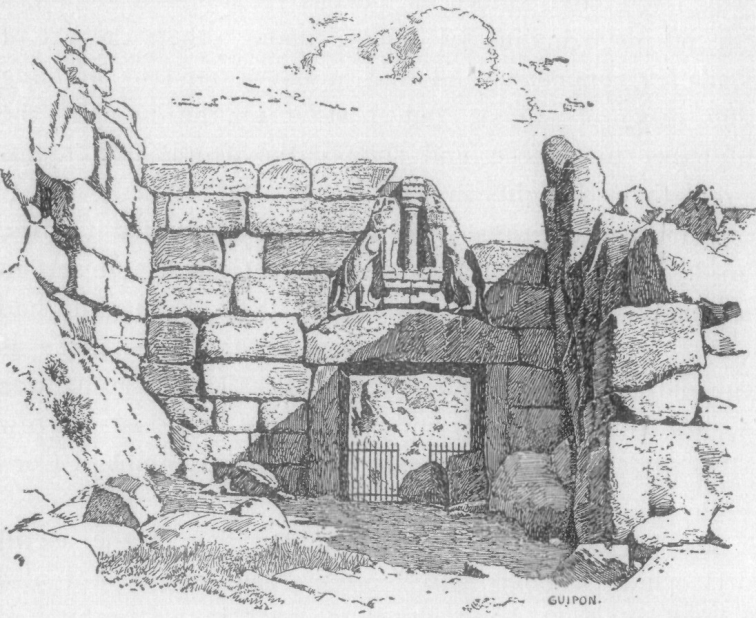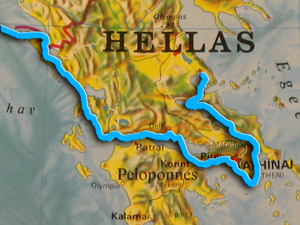===============================================================
STORY OF ATHURA AND
THE HELLAS
Athura is aramaic word of Assyria
Assyria is an english word
Hellas was the hellenized word of the greeks
greeks is an english word
//////////////////////////////////////////////////////////
Babylon is the capital city of Athura.
HISTORY OF BABYLON....
The rivers Euphrates and tigris 1,500 miles flow through a wide valley known as Mesopotamia meaning between two rivers . the southern lands was known as Agade or Akkad
whose capital city was Babylon the lands of Agade Athura and Babylon was known to the bible in aramaic language as SHINAR.
The northern lands was called Athura or in english known as Assyria
Before the flood.. the capital city was known as the city of Ur
When the flood ended on 2238 BC . Then the descendants of Cain filled the lands followed by the people Samsi Iluna known as Shem and by the people of Hammurabi known as Ham
The son of Ham known as Nimrod began the construction of the Tower of Babel on 2256 BC
Then God stopped the construction
After this they were dispersed to the lands of Egypt, Phoenix, Hellas and as fAR AS THE LANDS KNOWN AS HYPERBOREAS north of the lands of Mt. Ararat the Himalayas mountains and as far as India
The.... CUSH became the king of the city of Kish
Then... the son of Shem known as Asshur rebelled against the rule of Nimrod Asshur and his brother Arphaxad pushed Nimrod to Egypt and Nimrod became the king of Egypt known asAthotis
After this... the descendants of Arphaxad and Asshur dominated the lands of Athura (Gen.10:11) from then on... the lands was called the land of Asshur... thus the country was called ASSYRIA
Nimrod joined his father in reigning the kingdom of Egypt from 2194-2192 BC. Then Cush died leaving Nimrod to reign from 2192 = 2167 BC
In 2167 BC Sammur raut the queen of Cush stayed in Athura leaving Egypt without a king or queen . Later she returned to Egypt with her young son Horus known also as Gilgamesh
Horus became a pharaoh of Egypt from 2125 BC and he reigned for 31 years
Then Horus led a group of people to settle in Hellas he left his mother Sammurraut to manage the kingdom of Egypt
Sammur raut was also known as Ishtar
gilgamesh
also called as Nimrod of the bible an Horus Pharaoh of Egypt


(Genesis 10:2-5)
Japheth's sons were named Gomer, Magog, Madai, Javan, Tubal, Meshech and Tiras. Their descendants became the maritime nations in various lands, each with a separate language (Gen 10:5).

GENESIS 10
MAGOG , MESCHECHS AND TUBAL AND JAVAN
PELASGIANS
ANCIENT PEOPLE OF HELLAS
About two thousand years before the birth of Christ, in the days when Isaac wanted to go down into Egypt, Greece was inhabited by a savage race of men called the Pe-las´gi-ans. They lived in the forests, or in caves hollowed out of the mountain side, and hunted wild beasts with great clubs and stone-tipped arrows and spears. They were so rude and wild that they ate nothing but raw meat, berries, and the roots which they dug up with sharp stones or even with their hands.
For clothing, the Pelasgians used the skins of the beasts they had killed; and to protect themselves against other savages, they gathered together in families or tribes, each having a chief who led in war and in the chase.
There were other far more civilized nations in those days. Among these were the E-gyp´tians, who lived in Africa. They had long known the use of fire, had good tools, and were much further advanced than the Pelasgians. They had learned not only to build houses, but to erect the most wonderful monuments in the world,—the Pyr´a-mids, of which you have no doubt heard
In Egypt there were at that time a number of learned men. They were acquainted with many of the arts and sciences, and recorded all they knew in a peculiar writing of their own invention. Their neighbors, the Phœ-ni´-cians, whose land also bordered on the Mediterranean Sea, were quite civilized too; and as both of these nations had ships, they soon began to sail all around that great inland sea.
Egyptians hebrews and Phœnicians finally came to Greece, where they made settlements, and began to teach the Pelasgians many useful and important things.
INACCHUS was the first king of Peloponesos. He built the city of Argos
The Pelasgians, glad to find such a wise leader, gathered around him, and they soon learned to plow the fields and to sow wheat. Under Cecrops' orders they also planted olive trees and vines, and learned how to press the oil from the olives and the wine from the grapes. Cecrops taught them how to harness their oxen; and before long the women began to spin the wool of their sheep, and to weave it into rough woolen garments, which were used for clothing, instead of the skins of wild beasts
After building several small towns in At´ti-ca, Cecrops founded a larger one, which was at first called Ce-cro´pi-a in honor of himself. This name, however, was soon changed to Ath´ens
When Cecrops died, he was followed by other princes, who continued teaching the people many useful things, such as the training and harnessing of horses, the building of carts, and the proper way of harvesting grain. Cadmus, a prince even showed them how to make beehives, and how to use the honey as an article of food.
Shortly after the building of Athens, a Phœnician colony, led by Cad´mus, settled a neighboring part of the country, called Bœ-o´tia, where they founded the city which was later known as Thebes. Cadmus also taught the people many useful things, among others the art of trade (or commerce) and that of navigation (the building and using of ships); but, best of all, he brought the alphabet to Greece, and showed the people how to express their thoughts in writing.
Almost at the same time that Cadmus fhad built the city of Thebes,
an Egyptian governor from Canaan called Dan´a-us a leader from the tribe of Dan son of Jacob. The hebrews came and settled a colony on the same spot where that of Inachus had once been. The new Argos rose on the same place as the old; and the country around it, called Ar´go-lis, was separated from Bœotia and Attica only by a long narrow strip of land, which was known as the Isthmus of Cor´-inth.

BOETHOS king of Aigyptos (egypt)

Danaus one of the hyksos of ancient Egypt was defeated by the army of bOETHOS king of Aigyptos so they wEnt to Bœ-o´tia and he was welcomed by Cadmus
Danaus not only showed the Pelasgians all the useful arts which Cadmus and Cecrops had taught, but also helped them to build ships like that in which he had come to Greece.

The descendants of Danaus long ruled over the land; and one member of his family, Per´seus, built the town of My-ce´næ on a spot where many of the Pelasgian stone walls can still be seen.
The Pelasgians who joined this young hero helped him to build great walls all around his town. These were provided with massive gateways and tall towers, from which the soldiers could overlook the whole country
DEUCALION, the early king of Thesaly told the people of the great flood . That Deucalion and his wife Pyr´rha were the only people left alive after the flood. When the waters had all gone, they went down the mountains of Dacia,
Deucallion had a son called Hellen The country was soon peopled by the children of these men, who always , and that they sprang from the race which owed its birth to this great miracle. Deucalion reigned over this people as long as he lived; and when he died, his two sons, Am-phic´ty-on and Hel´len, became king and the country was called Hellas
dacians, the people of deucalion
Deucalion and his wife Pyr´rha came over the mountains and drive some Hellasle away, do Hellen called the chiefs of all the different cities and towns to a council, to ask their advice about the best means of defense.All the chiefs obeyed the summons, and met at a place in Thessaly where the mountains approach the sea so closely as to leave but a narrow pass between. In the pass are hot springs, and so it was called Ther-mop´y-læ
war between the dacians and the hellas



/////////////////////////////////////////////////////////////
THE KINGDOM OF ASSYRIA The culture of Athura in the ancient Sumer was of the Late Stone Age, regarded as an age of barbarism. while in Egypt the pre-Dynastic prople were eloquent and of artistic and mechanical skill, and have mathematical ability
In Egypt and Babylonia the soil was tilled and its fertility increased by irrigation. Wherever man waged a struggle with Nature he made rapid progress, and the earliest great civilizations were rooted in the little fields of the Neolithic farmers. Their mode of life necessitated a knowledge of Nature's laws; they had to take note of the seasons and measure time. So Egypt gave us the Calendar, and Babylonia the system of dividing the week into seven days, and the day into twelve double hours.

Walang komento:
Mag-post ng isang Komento